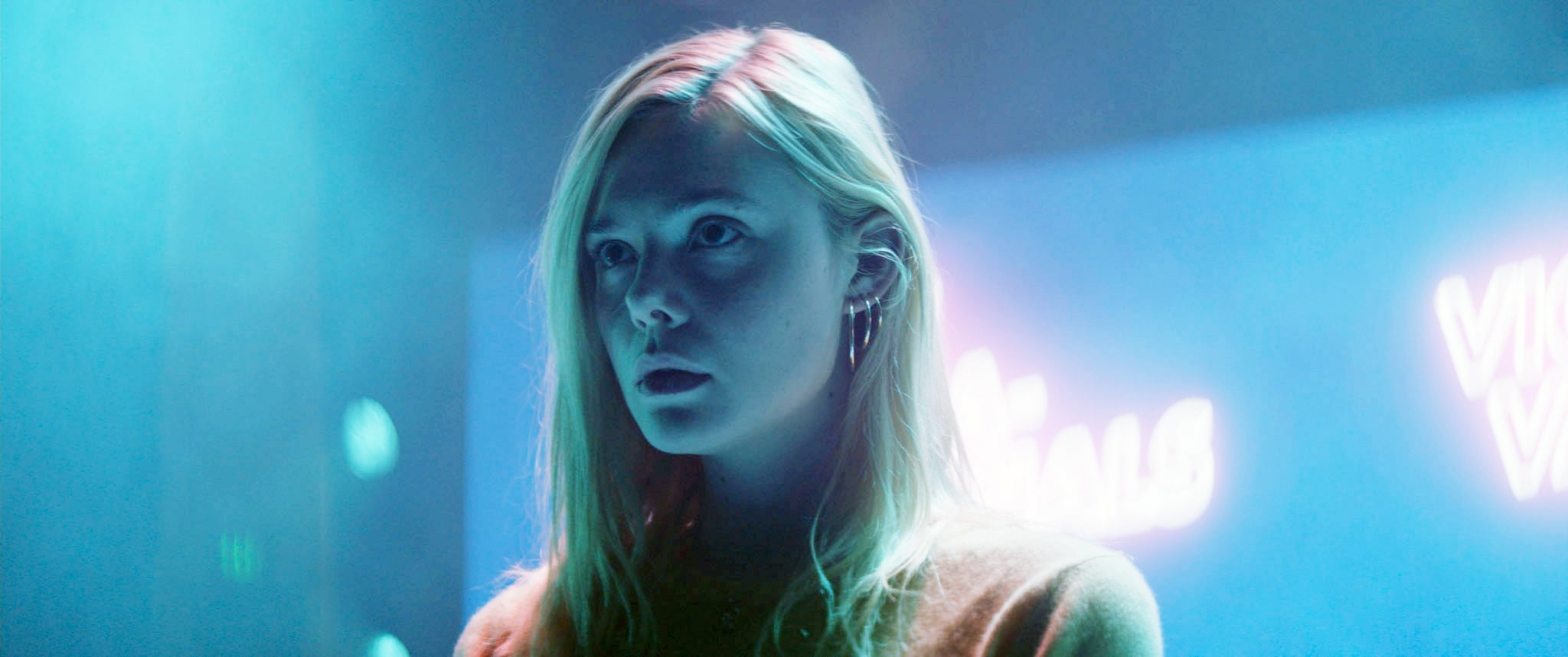
Music is one of the most unifying forces in the world. It is how an island in the Pacific full of non-English speakers have built one of the richest hip-hop cultures on the planet, despite never having visited the South Bronx, or the West in general. Music has fostered connections between people of disparate backgrounds throughout the ages, with Charles Darwin himself unable to crack the code of just how it has managed to transfix mankind, writing in The Descent of Man, “…as neither the enjoyment nor the capacity of producing musical notes are faculties of the least use to man… they must be ranked among the most mysterious with which he is endowed.” The ability of music to connect us in meaningful ways is touched upon in Teen Spirit, as we see how a young woman’s dreams of making it as a singer allow her to forge new relationships and repair older ones.
Teen Spirit documents the story of Violet (Elle Fanning), a seventeen year old Polish girl living on the Isle of Wight in the United Kingdon who dreams of becoming a singer. While participating in an open mic night at the local pub, Violet catched the attention of Vlad (Zlatko Buric), an unassuming drunk who happens to be a formerly great opera singer. When Violet needs a guardian to sign a release allowing her to compete in a national singing competition reality show called Teen Spirit, Vlad agrees to help as long as he can be her manager in the event she makes it big. The two then embark on a climb up the ladder to stardom that will test their character.
On its surface, Teen Spirit is a film about a young woman aspiring to make it as a singer. But its theme presents a humanistic, emotional touch on the enjoyment and consumption of the art form and the connections that it engenders. During their journey competing on Teen Spirit, Violet and Vlad are able to come to grips with unstable familial relationships that they have. For Violet, her relationship with her mother is at times contentious and confrontational. Her mother discourages her from following her dreams and they constantly fight over it. But as Violet advances further in the competition, her mother becomes more proud of her and their bond strengthens. Likewise, through his managerial relationship with Violet, Vlad becomes more open to rekindling his relationship with his own daughter. Becoming so close and invested in Violet’s success makes him miss having such a close relationship with his own flesh and blood. As Violet begins to experience the attention and adulation that comes with fame and fortune, or the potential that she can reach both of these things, she must learn whom to trust and who not to, and make decisions on who has her best interests in mind. In one of the film’s major plot points, Violet must choose between accepting a contract offer from star-making record executive Jules (Rebecca Hall) or staying with Vlad as her manager. The offer from Jules is everything she had been working toward, but would come at the expense of the man who helped shepherd her to that point in the first place. This conundrum is a common one for new artists on the rise and plays into the theme about how music can cultivate, but also test, interpersonal relationships.
The trailer for Teen Spirit gives the impression that its cinematography would mirror that of Nicholas Winding Refn, rich with bright, electric, neon color that is as vibrant and eye-catching as it is luminous. What director of photography Autumn Durald presents us with instead is a painted canvas that is full of shots that feel as if the only light present on set was that which emanated from natural sources. The natural-styled light contributes in making the film have a real life feel, almost documentary-like in parts. The use of light and shadow not only allows the audience to feel immersed within the film itself, but also results in some visual storytelling, such as a shot where record executive Jules is partially concealed in darkness as she extends an offer for a recording contract to Violet, with the caveat that she must abandon Vlad as her manager, emphasizing the evil temptation the conversation represents. Similarly, when Violet auditions before the judges during her tryout for Teen Spirit, the three are seated at a table completely covered by the shadows in the auditorium, becoming mysterious voices that represent the music industry as a whole rather than specific individuals.
Teen Spirit begins slowly but picks up and becomes interesting once the story begins to revolve around the relationship between Violet and Vlad and explores their connection more deeply. The surrogate father-daughter relationship between the two is presented in a very believable manner and the audience is made to connect with their journey empathetically which first time director Max Minghella accomplishes well. In that vein, the performances from Elle Fanning and Zlatko Buric are at the center of the film and fully power it forward, playing a large role in how well the story works. The only issue with the film is that it takes too long to effectively reach this point, which may cause some viewers to tune out and never reconnect with it in time. The cinematography from director of photography Autumn Durald, is full of natural lights and tones that makes the viewing experience feel immersive, accompanied by vibrant, neon hued musical performance that call back to the most extravagant music videos produced. Teen Spirit has its pacing issues but is a promising introductory effort for Minghella.
Image: Bleecker Street

